I share this lecture from my online course on business ethics to help all of us to better understand what we ought to conserve - the worth of the individual. The massive bailouts of corporate predators on Wall Street by central government in Washington - at the expense of the little individual taxpayer, again - underscores the timeliness of this challenge.
Week 4 of our course deals with chapter 5 in our textbook on the ethical dynamics of large corporations. In order to help us to better grasp the nature of a large corporation’s ethical dimensions, I will outline some of my thoughts about the topic.
John Bowle – John Bowle taught political theory at Cambridge University. When I was a special one-year student as an undergraduate in the Honours School of History and Political Science at the University of Dublin, I read one of his books. In it, he provided an insight that sheds lots of light on our topic. Bowle noted that the only political philosophy created in the 20th century, after the year 1900, was the “Corporate State.”
Prior to 1900, all political philosophy focused on the place of the individual in the state, society, and government, but as the Industrial Revolution spawned ever-larger business corporations, which government and other institutions have copied (the factory model). These huge corporations, private, public, for-profit, not-for-profit, religious, military, mass media, etc., dwarf the importance, impact, and value of the individual.
The Corporate State approach to politics sought to account for this reality, or what its proponents considered to be the reality of the Industrial Age with its centralized, bureaucratic, factory-based models of doing business. It argued that instead of a system of government, economics, social services, etc. that sought to represent individual preferences through direct participation (“participatory democracy,” the battle cry of The Sixties), we ought to create an “Economic Parliament” in which the various corporations of the society brokered the resources. In effect, the Corporate State says that the huge labor unions, business corporations, and related bloated governmental agencies in practice cut the pie, and we ought to step up to the plate and recognize this reality.
Benito Mussolini created such an “Economic Parliament” in Italy after he came to power in the 1920’s. There was no need to vote. Your union, your company, or your professional association spoke for you. Of course, you could influence the internal workings of your corporate power bloc, but there was no need to vote as an individual for individuals in parliamentary or congressional elections. In effect, the Corporate State unmasked the reality of the power of huge business corporations and sought to account for it. World War II has made it very unpopular to talk about this view of government, economics, and society, but Professor Bowle argued that we ought not to let war propaganda about fighting for freedom against Fascists like Mussolini obscure the valid insights that the Corporate State concept provides.
Chapter 5 in our textbook in effect is a screed, an argument against the reality of the Corporate State. It seeks individual accountability in an environment that no longer values the individual when it comes to actual business, social, governmental, and political practices. Consider the armies of lobbyists who descend on government before, during and after elections. Consider the huge corporate contributions to various leaders to make sure that the corporations, which include big government, big business, and big labor, get their way at the expense usually of those of us who are not part of big corporations.
In 1993, William Greider published his bestseller Who Will Tell the People? In it he in effect argued that big business, big government, and big labor had made a sham and farce of electoral politics in America based on the myth or sham of individual democracy. In effect, Greider announced that the Corporate State has triumphed in industrial societies.
All of us, including your professor, value the individual, his or her worth, his or her rights, his or her accountability, etc. Yet, how realistic is it to expect the individual to go up against huge concentrations of economic, political, and social power – as the Corporate State describes? It may be, as Greider argues, we are just fooling ourselves about the power of the individual to make an impact, including ethical impacts, on the huge corporate structures that dwarf and tower over us – and for those of us on the outside of them, ignore and / or exploit us.
Now, here is the good news. The new Internet-based economy gives us the technological tools now to decentralize power, business, economics, politics, services, etc. in ways that will break up the factory model of doing business that the Corporate State describes. The Internet-based outsourcing and telecommuting trends signal that the day in which the center controlled one and all may be numbered. The individual’s website has the same reach and accessibility as does the website of IBM. As the centralized corporate factory method of business and economics collapses, the decentralized, Internet-based, networked business processes that are replacing it offer us a chance to reinvent a scale of living and business that gives the individual person a real say, which in turns, gives him or her real ethical power. We are not yet there, but the lament for the ethical power of the individual in our textbook is real.
To expect the individual to overthrow the Corporate State in areas like ethics based on the power of Ethical Ideals is wishful thinking in my view. However, if we use the new Internet-based technologies to decentralize economic processes, which, in turn will undermine centralized bloated governmental agencies and other similar associations and power blocs, I believe we can reverse the power of the Corporate State.
In the process, we will provide realistic opportunities for personal ethical impact again on our organizations, because they will be of a human scale again.
-- Paul Rux, Ph.D.Xpert Planning & FundingWebsite: http://www.paulrux.net/
"Life is more than we think it to be." - Zona Gale
Subscribe to:
Post Comments (Atom)

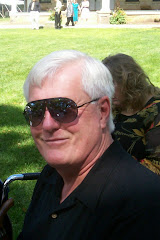







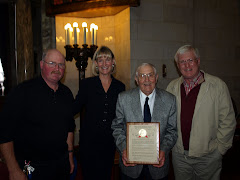

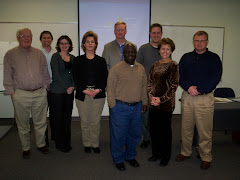
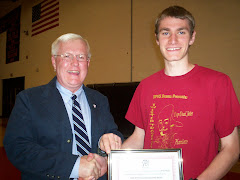
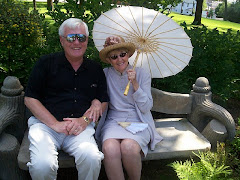

No comments:
Post a Comment